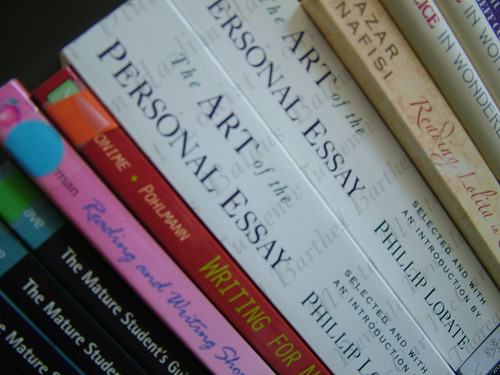 Any student gazing in half-panicked dismay at their essay title may be forgiven for wondering whether these were just thrown together at random.
Any student gazing in half-panicked dismay at their essay title may be forgiven for wondering whether these were just thrown together at random.
Their teacher or lecturer had to provide some sort of prompt, just so they had something to mark later on. This is how we get grades after all.
No. In fact your tutor could well have spent as long agonizing over how to phrase the question, as the student will in answering it. Essay questions are very precisely worded, in order to solicit a very precise response. This is the reality of how you get your grade.
One of the most common errors is to skim-read the question to glean the general subject, then write about everything you know about it. The law of averages states that something in that jumble might actually address what's being sought, but not the rest of it. Marks are being lost right there.
For example, say that the class has read five books in English Literature. The assignment is to pick an essay title from five on offer, each pertaining to one of those novels. Our student actually paid attention while reading Wuthering Heights, so selects the option: 'Explain how Emily Bronte uses the character of Edgar Linton to contrast with that of Heathcliff.'
The temptation would be to regurgitate all that has been learned in class about the novel, perhaps with a long diversion into Emily Bronte, her life and times, and the genre of Gothic fiction unto the present day. This is too much. Not only does it not answer the question, but it would take forever to write and go far over the word count. In that direction lies panic and despair.
First Tip: Read precisely what the question is asking. Ignore anything not in the remit of the question.




 Any student gazing in half-panicked dismay at their essay title may be forgiven for wondering whether these were just thrown together at random.
Any student gazing in half-panicked dismay at their essay title may be forgiven for wondering whether these were just thrown together at random.


 It's not just the general meaning of the title that can guide you. The exact wording acts as a blueprint for what you should be writing in response.
It's not just the general meaning of the title that can guide you. The exact wording acts as a blueprint for what you should be writing in response.


 The best advice I ever received about writing essays came from a professor. It was during my first lecture, in my first week at University, when she was explaining what we could anticipate from her course.
The best advice I ever received about writing essays came from a professor. It was during my first lecture, in my first week at University, when she was explaining what we could anticipate from her course.




 St Tydecho's Churches in West Waleson 09/03/2014
St Tydecho's Churches in West Waleson 09/03/2014
 Goodies for an Outlander Premiere Partyon 03/06/2015
Goodies for an Outlander Premiere Partyon 03/06/2015
 Holocaust Memorial Day Interview with Rainer Höss, Grandson of Rudolf Architect of Auschwitzon 01/24/2015
Holocaust Memorial Day Interview with Rainer Höss, Grandson of Rudolf Architect of Auschwitzon 01/24/2015
 Romantic Valentine Gifts for an Outlander Fanon 01/16/2015
Romantic Valentine Gifts for an Outlander Fanon 01/16/2015



Comments
Glad to be of service! And I'm glad that it is useful for you. <3
Ouch! That must have been one heck of a leap!
I do wish they'd asked us to write more essays during my college time. I might have enjoyed writing them ;) Instead we were expected to dive in and write dissertations two years in, after hardly any preparation.
Nice one, Christian. I'll see what I can do about writing that article for you. :)
I like writing essays and i even publish them https://www.grin.com/login/#user/7211... ;) INteresting would be a guide how to write them in Englisch for non-native-speaker. Like where to find the special vaocab and such things :).
Writing is my passion (as you can probably tell by the fact I've joined Wizzley LOL). I agree that it's very rewarding to be able to pass on tips like this, then see the results afterwards.
Writing is my favorite thing to teach. It's so rewarding! Challenging, for sure, but very rewarding when that final draft is a masterpiece.